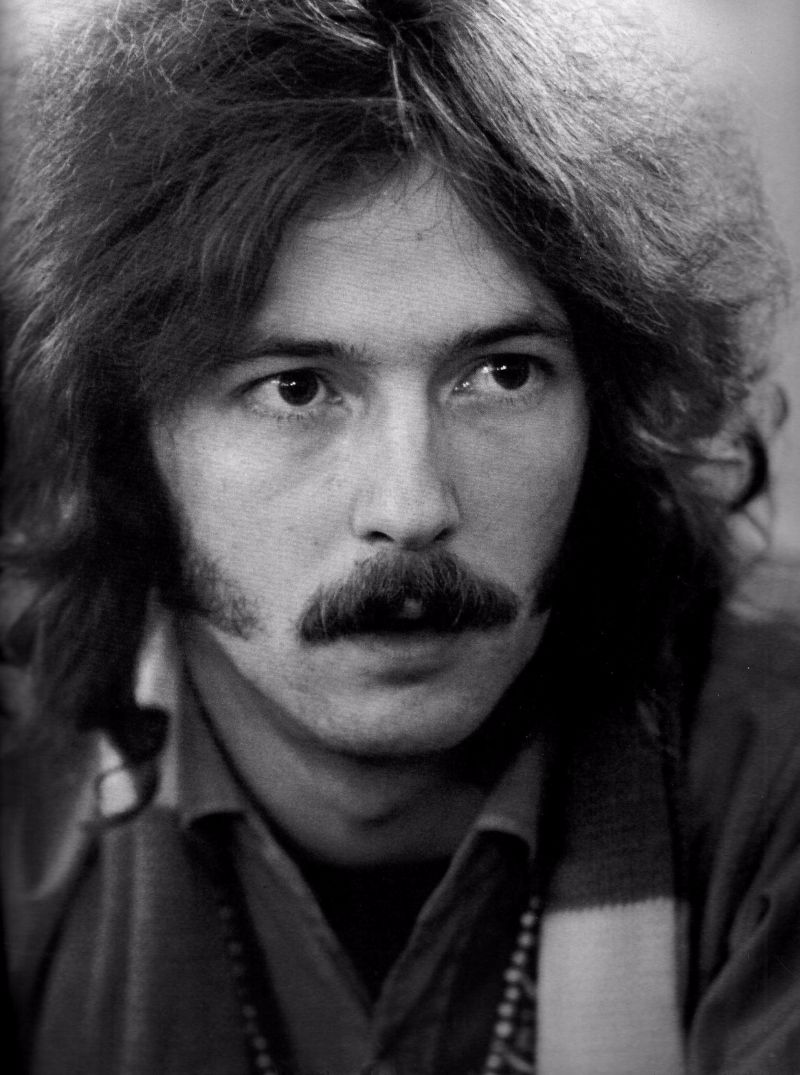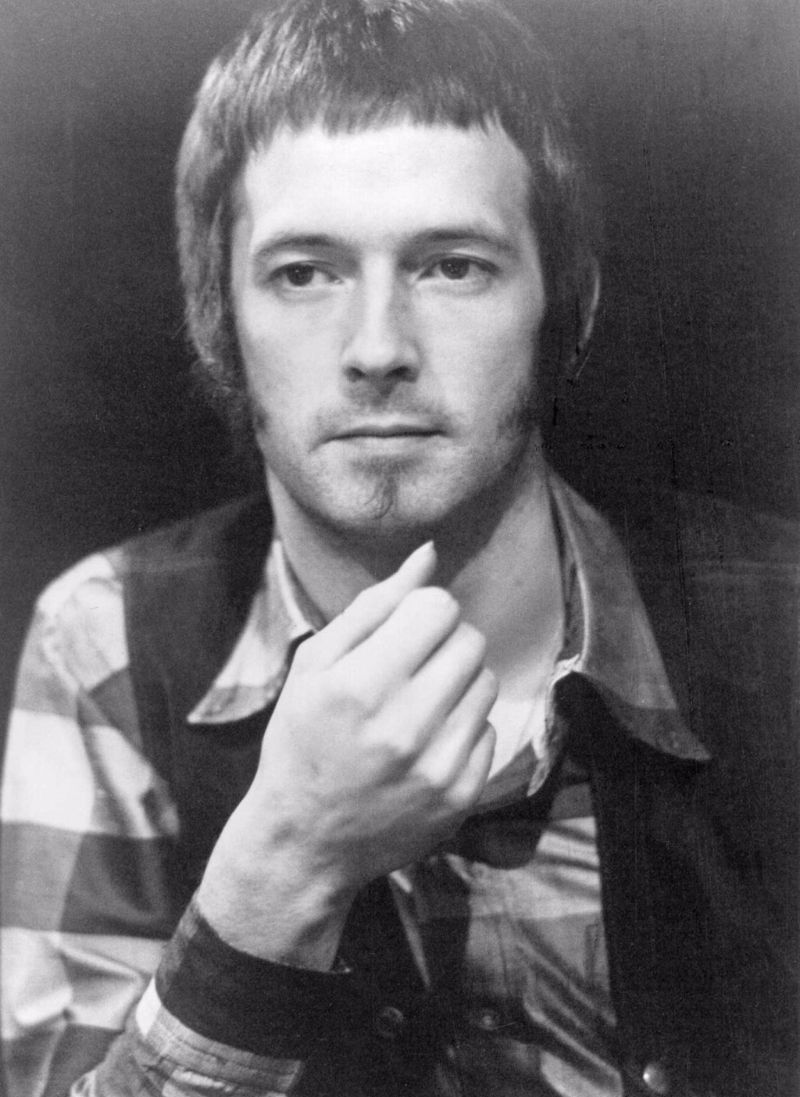Who was Eric Clapton when he was young? Eric Clapton is widely regarded as one of the greatest guitarists of all time, and his early years were formative in shaping his legendary career.
Born in Ripley, Surrey, England, in 1945, Clapton's passion for music emerged at a young age. He received his first guitar at the age of 13 and quickly developed a natural talent for the instrument. Influenced by blues and rock 'n' roll, Clapton honed his skills by playing in local bands and absorbing the styles of his idols.
In the early 1960s, Clapton joined the Yardbirds, a seminal British blues-rock band. His tenure with the Yardbirds marked a significant turning point in his career, as he gained recognition for his exceptional guitar playing and soulful vocals. Clapton's contributions to the band's albums, such as "For Your Love" and "Heart Full of Soul," showcased his burgeoning talent and helped establish the Yardbirds as one of the leading bands of the British Invasion.
| Name | Birth Date | Birth Place |
|---|---|---|
| Eric Clapton | March 30, 1945 | Ripley, Surrey, England |
In 1965, Clapton left the Yardbirds to join John Mayall & the Bluesbreakers, another influential British blues band. His time with the Bluesbreakers further solidified his reputation as a master guitarist, and his distinctive playing style became known as the "Clapton sound."
eric clapton youngIntroduction
Early Influences
The Yardbirds and the British Invasion
eric clapton young
As a young musician, Eric Clapton's talent, passion, and influences shaped his early career and laid the foundation for his enduring legacy as one of the greatest guitarists of all time.
- Early Influences: Blues and rock 'n' roll
- The Yardbirds: Clapton's breakthrough band
- John Mayall & the Bluesbreakers: Furthering his reputation as a master guitarist
- "Clapton Sound": His distinctive playing style
- The Cream: Clapton's supergroup with Jack Bruce and Ginger Baker
These key aspects highlight the various dimensions of Eric Clapton's young career, from his early influences to his rise to fame and the development of his signature sound. These formative years not only showcased his exceptional talent but also set the stage for his continued success and influence on generations of musicians.
| Name | Birth Date | Birth Place |
|---|---|---|
| Eric Clapton | March 30, 1945 | Ripley, Surrey, England |
Early Influences
Eric Clapton's early influences played a pivotal role in shaping his musical style and career trajectory. From a young age, he immersed himself in the sounds of blues and rock 'n' roll, which became the foundation for his distinctive guitar playing and songwriting.
Clapton's passion for blues music was ignited by listening to artists like B.B. King, Muddy Waters, and Howlin' Wolf. He was captivated by the raw emotion and expressive solos that characterized the blues genre. Clapton's early blues influences can be heard in his early recordings with the Yardbirds and John Mayall & the Bluesbreakers, where he showcased his ability to blend traditional blues techniques with his own innovative style.
In addition to blues, Clapton was also heavily influenced by rock 'n' roll. He was drawn to the energy and rhythmic drive of artists like Chuck Berry, Elvis Presley, and Buddy Holly. Clapton incorporated elements of rock 'n' roll into his guitar playing, creating a hybrid sound that was both soulful and dynamic. This fusion of blues and rock 'n' roll became a defining characteristic of Clapton's music throughout his career.
Clapton's early influences not only shaped his musical style but also laid the groundwork for his future collaborations and successes. His deep understanding of the blues and rock 'n' roll traditions allowed him to connect with a wide range of musicians and contribute to various musical projects. Clapton's ability to blend different genres and influences ultimately made him one of the most versatile and respected guitarists in rock history.
The Yardbirds
The Yardbirds served as a pivotal platform for Eric Clapton's early career and played a crucial role in shaping his musical identity. Joining the band in 1963, Clapton quickly became a central figure in their development, contributing his exceptional guitar skills and distinctive style to their sound.
During his tenure with the Yardbirds, Clapton's guitar playing became increasingly sophisticated, and he experimented with various techniques and effects. His innovative use of feedback and distortion, particularly on tracks like "I'm a Man" and "Shapes of Things," pushed the boundaries of electric guitar playing and influenced countless guitarists who came after him.
Beyond his technical prowess, Clapton's songwriting contributions to the Yardbirds were also significant. His compositions, such as "For Your Love" and "Little Games," showcased his ability to blend blues and rock elements into catchy and memorable songs. Clapton's songwriting skills would continue to develop throughout his career, and he remains one of the most respected songwriters in rock history.
The Yardbirds' success during Clapton's time in the band not only brought him international recognition but also provided him with a platform to hone his craft and explore different musical directions. His experiences with the Yardbirds laid the foundation for his subsequent achievements, both as a solo artist and as a member of other bands, including Cream and Derek and the Dominos.
In conclusion, the Yardbirds played a pivotal role in Eric Clapton's young career. The band provided him with a creative outlet to develop his guitar playing and songwriting skills, and it served as a launchpad for his subsequent success as one of the most influential and respected guitarists of all time.
John Mayall & the Bluesbreakers
Eric Clapton's tenure with John Mayall & the Bluesbreakers was a pivotal chapter in his young career. After leaving the Yardbirds in 1965, Clapton joined Mayall's band, which was renowned for its authentic blues sound and its role in nurturing some of the most talented British blues musicians of the era.
During his time with the Bluesbreakers, Clapton's guitar playing reached new heights. He developed a distinctive style that blended blues, rock, and jazz influences, and his improvisational skills became legendary. Clapton's innovative use of the wah-wah pedal, particularly on tracks like "All Your Love" and "Hideaway," became a defining characteristic of his sound and influenced countless guitarists who came after him.
Clapton's contributions to the Bluesbreakers were not limited to his guitar playing. He also wrote several songs for the band, including "Have You Heard" and "Ramblin' on My Mind," which showcased his growing songwriting abilities. These songs demonstrated Clapton's ability to craft catchy and memorable melodies while staying true to the blues roots of the band.
Clapton's reputation as a master guitarist was solidified during his time with the Bluesbreakers. His performances and recordings with the band garnered critical acclaim and helped to establish him as one of the leading guitarists of his generation. The Bluesbreakers also provided Clapton with a platform to experiment with different musical styles and techniques, which would later inform his work with Cream and as a solo artist.
In conclusion, John Mayall & the Bluesbreakers played a crucial role in Eric Clapton's young career. The band provided him with a creative environment to develop his guitar playing and songwriting skills, and it served as a springboard for his subsequent success as one of the most influential and respected guitarists of all time.
"Clapton Sound"
The "Clapton Sound" refers to the distinctive guitar playing style developed by Eric Clapton during his early career. It is characterized by a combination of blues, rock, and jazz influences, and is known for its emotional expressiveness, technical proficiency, and innovative use of effects.
Clapton's signature sound began to take shape during his time with the Yardbirds and John Mayall & the Bluesbreakers. He experimented with different guitar techniques and effects, such as feedback and distortion, to create a unique and powerful sound. Clapton's use of the wah-wah pedal became a defining characteristic of his style, and his improvisational skills were unparalleled.
The "Clapton Sound" had a profound impact on the development of rock and blues guitar playing. It influenced countless guitarists who came after him, and helped to establish Clapton as one of the most respected and influential guitarists of all time. Clapton's distinctive style continues to inspire and captivate audiences around the world.
The Cream
The formation of Cream in 1966 marked a significant turning point in Eric Clapton's young career. The supergroup, featuring Clapton on guitar, Jack Bruce on bass and vocals, and Ginger Baker on drums, quickly became one of the most successful and influential bands of the late 1960s.
- Collaborative Genius: Cream was a true melting pot of talent, with each member bringing their unique skills and musical influences to the table. Clapton's exceptional guitar playing, Bruce's soulful vocals and basslines, and Baker's thunderous drumming created a sound that was both innovative and captivating.
- Blues-Rock Fusion: Cream's music was a groundbreaking blend of blues, rock, and psychedelic elements. They pushed the boundaries of traditional blues by incorporating extended improvisations, complex song structures, and experimental sound effects, creating a sound that was both familiar and fresh.
- Live Performances: Cream's live performances were legendary. Their high-energy shows were known for their extended jams and Clapton's mesmerizing guitar solos. The band's ability to connect with audiences on a visceral level cemented their status as one of the greatest live acts of all time.
- Influence on Rock Music: Cream's impact on rock music was profound. Their innovative sound and virtuosic playing influenced countless musicians and helped to shape the development of hard rock and heavy metal. The band's legacy continues to inspire and captivate audiences around the world.
The Cream was a pivotal chapter in Eric Clapton's young career. The band provided him with a platform to showcase his exceptional guitar skills and explore new musical directions. Cream's success and influence cemented Clapton's status as one of the most respected and influential guitarists of all time.
FAQs on Eric Clapton's Young Career
This section addresses frequently asked questions about Eric Clapton's early life and career, providing concise and informative answers.
Question 1: What were some of Eric Clapton's early influences?
Answer: Clapton's early influences included a wide range of blues and rock 'n' roll artists, such as B.B. King, Muddy Waters, Chuck Berry, and Buddy Holly. These influences shaped his distinctive guitar playing style and songwriting approach.
Question 2: Which bands did Eric Clapton play with in his early career?
Answer: Clapton's early bands included the Yardbirds and John Mayall & the Bluesbreakers. With the Yardbirds, he gained recognition for his innovative guitar playing and helped popularize the blues-rock sound. His tenure with the Bluesbreakers further solidified his reputation as a master guitarist.
Summary: Eric Clapton's young career was marked by a deep immersion in blues and rock 'n' roll, which influenced his distinctive guitar playing style. His early experiences with the Yardbirds and John Mayall & the Bluesbreakers provided him with platforms to develop his skills and showcase his musical vision.
Conclusion
Eric Clapton's young career was a period of intense musical growth and exploration. His early influences, combined with his exceptional talent and dedication, laid the foundation for his enduring success as one of the greatest guitarists of all time.
Clapton's journey from his early days with the Yardbirds and John Mayall & the Bluesbreakers to the formation of Cream showcased his versatility, innovation, and ability to transcend musical boundaries. His distinctive playing style, known as the "Clapton Sound," continues to inspire and influence guitarists worldwide.
Clapton's young career serves as a reminder of the transformative power of passion, dedication, and the pursuit of musical excellence. It is a testament to the enduring legacy of one of the most iconic and influential figures in rock and blues history.




